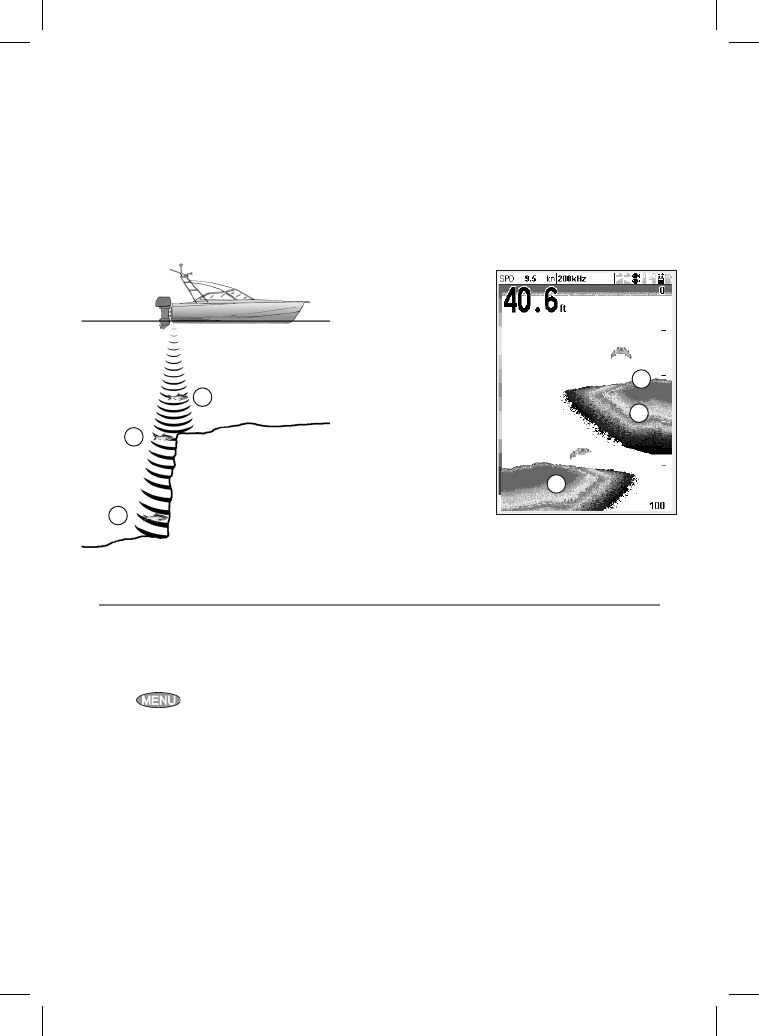
Northstar Explorer 657 Installation and Operation Manual34
Shadows
Shadows are created around areas where the ultrasonic beam cannot ‘see’. These areas include hollows
on the bottom or beside rocks and ledges, where the strong echoes returned off the rocks obscure the
weak echoes of the fish and may also create a double bottom trace. See following for an example of the
sonar display in such an environment. A double bottom trace is shown on the display.
When looking for fish with the wide angled 50 kHz frequency, be aware of increased shadows. Use the
high frequency 200 kHz in areas that have rocks and ledges because this frequency reduces the shadow
effect considerably.
Sonar display of same area
Example of shadows
A Fish is visible on the display
B Fish is hidden by the strong
echoes off the bottom and is not
shown on the display
A
B
A
B
A
A
8-3 Single and Dual frequency fishfinding
discrimination capability and is particularly good
at showing individual fish, including bottom
dwellers.
When to use 50 kHz
The 50 kHz frequency is particularly suitable for
use in deep water, typically greater than 500 ft
(150 m).
At 50 kHz, the cone covers an area of water about
four times wider than the 200 kHz cone and
penetrates to a greater depth with minimal loss of
the return signal.
However, it produces a lower definition display
with more shadow compared to the 200 kHz
frequency. This means that a group of small fish,
for example, could be displayed as a single item,
while any fish very close to the bottom may not
be found at all.
Sonar frequencies
The 657 has two sonar frequencies, 200 kHz and
50 kHz. To select the sonar frequency to use:
1 Go to a sonar display (see section 9).
2 Press
, select Frequency and select
200 kHz, 50 kHz,or Mixed.
When to use 200 kHz
The 200 kHz frequency is especially suitable for
use in shallow and medium depth water, typically
less than 500 ft (150 m) and while running at
speed.
At 200 kHz, the narrow cone reduces any noise
caused by air bubbles.
The 200 kHz frequency generates a higher
definition pulse which produces little shadow
and returns excellent detail over a small area
of bottom. Therefore, it gives excellent bottom


















